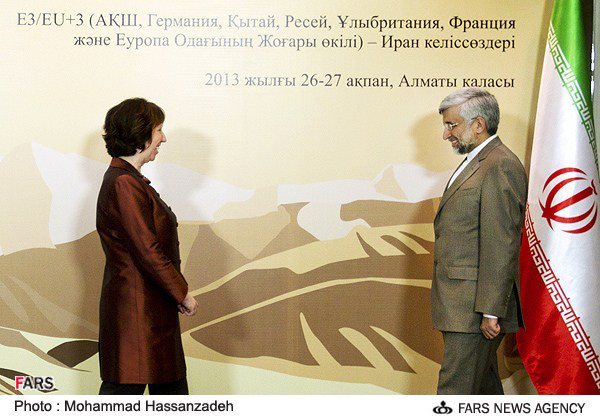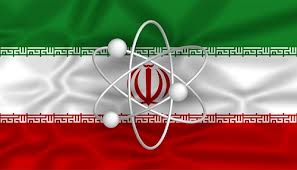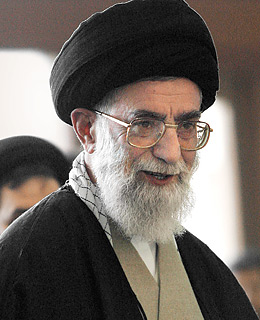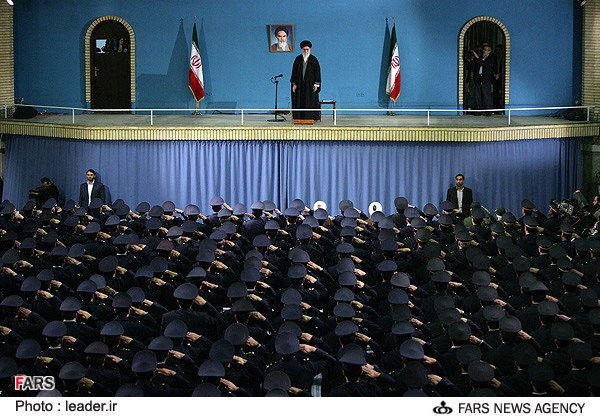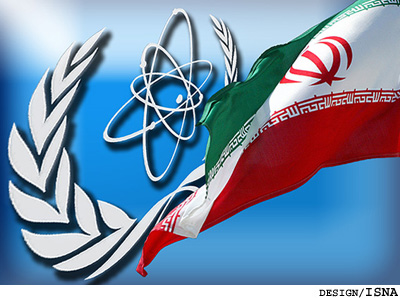 Appearing alongside the European Union's foreign policy chief Catherine Ashton, the lead negotiator for the 5+1 Powers in the nuclear talks with Iran, new US Secretary of State John Kerry met in Washington said he looked forward to Ashton's "critical effort" in high-level discussions with the Iranians on 26 February in Kazakhstan.
Appearing alongside the European Union's foreign policy chief Catherine Ashton, the lead negotiator for the 5+1 Powers in the nuclear talks with Iran, new US Secretary of State John Kerry met in Washington said he looked forward to Ashton's "critical effort" in high-level discussions with the Iranians on 26 February in Kazakhstan.
"We hope that the talks in Almaty in a few days can show some further progress, perhaps open some additional opportunities," Kerry said.
However, the Secretary of State's rhetoric was put in context by the revelation from "Western officials" of the offer to be made to Iran. In exchange for Tehran's steps to close its enrichment plant at Fordoo, which produces 20% uranium, the US and its allies will lift sanctions.
Well, not all sanctions. Not the sanctions levied in 2010, following the American rejection of the Iran-Brazil-Turkey offer in the Tehran Declaration. Not the sanctions levied in 2011 or 2012, including last July's European cut-off of oil imports from Iran and insurance for Iranian oil tankers anywhere in the world. Not the restrictions on Iran's financial and banking sectors, including international transactions via the SWIFT system and payments in Euros or dollars.
No, the only sanctions that may be removed --- in exchange for the "stop, ship, and shut" demand of the US and Europe over 20% uranium, --- are those imposed by Washington ten days ago.
Specifically, the US will lift the ban on transfer of gold and precious metals to Iran. The significance of that measure is that it chokes off alternative forms of payment for Iran's oil and gas, such as Turkey's transfer of gold to Tehran --- which increased 11,000% in 2012 --- for natural gas.
This is only a modified version of Washington's position since last June's stalemate in Moscow at the last high-level talks. First, Iran makes the major concessions on its nuclear programme, giving up 20% uranium enrichment, then there will be negotiations.
This is not the "reciprocity" proclaimed by former US Secretary of State Hillary Clinton last autumn. It certainly is not the reciprocity that will be demanded by the Iran.
At best, then, the talks in Kazahstan in ten days are "holding" discussions to stave off military action while Iran endures another six months of economic pressure.
Then the discussions will resume in September, after Iran's Presidential elections. And Washington can then say it is making a genuine offer of "reciprocity": if Tehran will shut the Fordoo plant, the US will lift the sanctions imposed on 6 February 2013.


 Thursday, February 28, 2013 at 8:10
Thursday, February 28, 2013 at 8:10